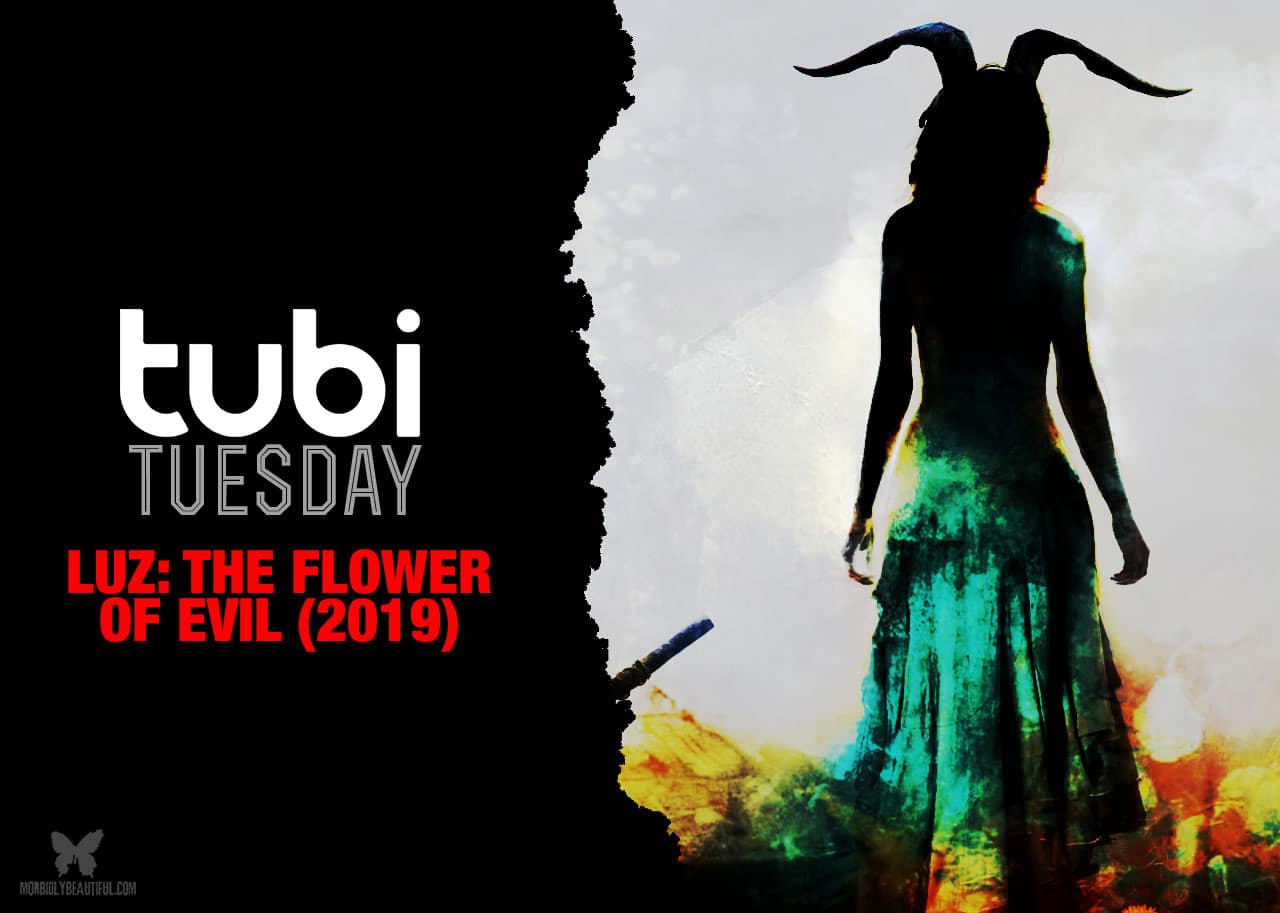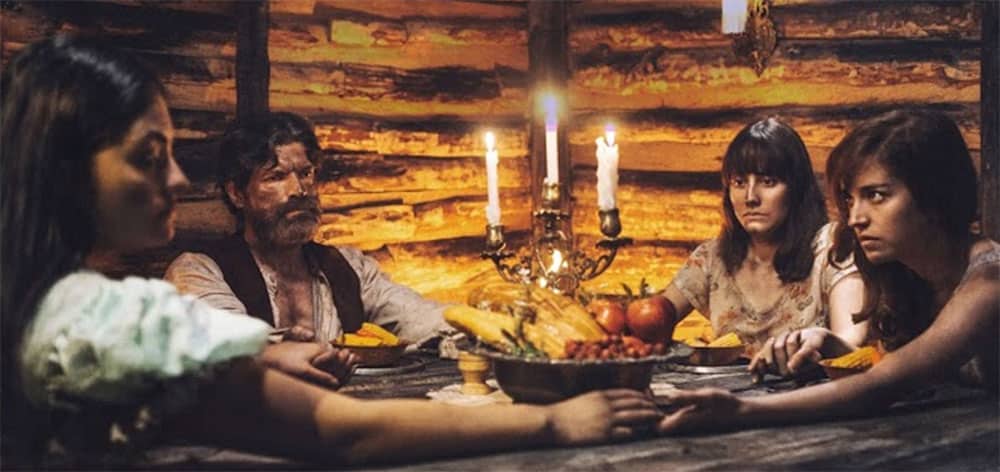A bold and stunningly photographed film, “Luz: The Flower of Evil” is an enigmatic parable of the mysteries of faith and the human condition.
It all starts with a cassette player. Laila (Andrea Esquivel) finds it in the woods near her isolated, deeply religious community run by her father, containing a seemingly innocuous piece of classical music. Nevertheless, her father, community leader, and fiery preacher El Señor (Conrado Osorio) forbids her to listen to it, claiming music is the Devil’s mouthpiece.
Unbeknownst to him, Laila has hidden another cassette, sharing her illicit find with her two adopted sisters, Uma (Yuri Vargas) and Zion (Sharon Guzman).
Or maybe it started earlier, when El Señor started bringing children to the village, claiming each to be the reincarnation of Jesus returned to lead them out of the darkness. Left chained up out in the elements, each child eventually died, but El Señor’s just brought home a new boy that he’s sure is the real Messiah this time: a mysterious blonde-haired, blue-eyed child that may have some unique abilities.
Perhaps the troubles were brought on by Uma lusting after a local guy named Adán (Jim Muñoz). They could have even started back when the sisters lost their mother figure, the titular Luz, now buried under a tree that refuses to bloom.
Whatever the cause, bad things start happening in this corner of the forest, and El Señor’s grip on his followers begins to slip, along with his sanity.
Much like the Irish film Gateway, Colombian director Juan Diego Escobar Alzate’s film Luz: The Flower of Evil is a movie that lives in ambiguities.
The misfortunes that befall its characters could be the result of a vengeful God, the machinations of the Devil, or simply the inexplicable randomness of human suffering. This approach might frustrate some who prefer a more straightforward explanation, but Alzate isn’t interested in taking that approach.
Much like his characters pushing the boundaries of their faith, it’s up to us to decide what to make of its strange happenings.
It might not be the first place that comes to mind for most fans, but the continent of South America has produced some pretty gnarly horror movies. If you know even a little about the region’s history, it isn’t hard to understand why.
Many countries are still trying to move beyond the legacy of brutal military dictatorships and cartel violence that continue to leave physical and emotional scars and, in some cases, are still ongoing.
Argentina’s When Evil Lurks is the most recent example of a South American filmmaker using a horror lens to take an unflinching look into the heart of darkness; when you’ve seen with your own eyes the horrors that mankind can do to itself, the supernatural might not seem all that scary.
While When Evil Lurks presents an all-consuming vision of evil that is as pure as it is unrelenting, the violence inflicted in Luz has a frightening ring of truth.
It’s the violence done in the name of a so-called righteous cause.
Authoritarians and religious figures never think what they’re doing is evil, no matter how much suffering they inflict, as long as it’s in service of what they consider the greater good. El Señor believes his actions will bring about a better world, even if he has to kidnap children and keep an iron grip on his followers to make it happen.
Luz‘s ambiguity makes this even more unsettling; while El Señor’s actions are appalling, the film leaves us open to the frightening possibility that maybe he’s right.
Luz is a difficult film to pin down, and I’m still not sure what to make of it. It’s shot with a lush, dreamlike feel, the natural beauty of the setting clashing mightily with its characters’ descent into religious mania.
It’s bound to leave you with more questions than answers, and I can definitely understand it not being for everyone, but I found its mysteries compelling.
Watching any movie is an act of faith that the filmmakers will lead us on a journey worth taking.
Alzate asks us to take that faith one step further, to let our own beliefs guide us toward making some sense of the horrors we’ve witnessed.
Whether you’re willing to do that is up to you, or maybe you’d be better off getting comfortable not knowing.

















Follow Us!